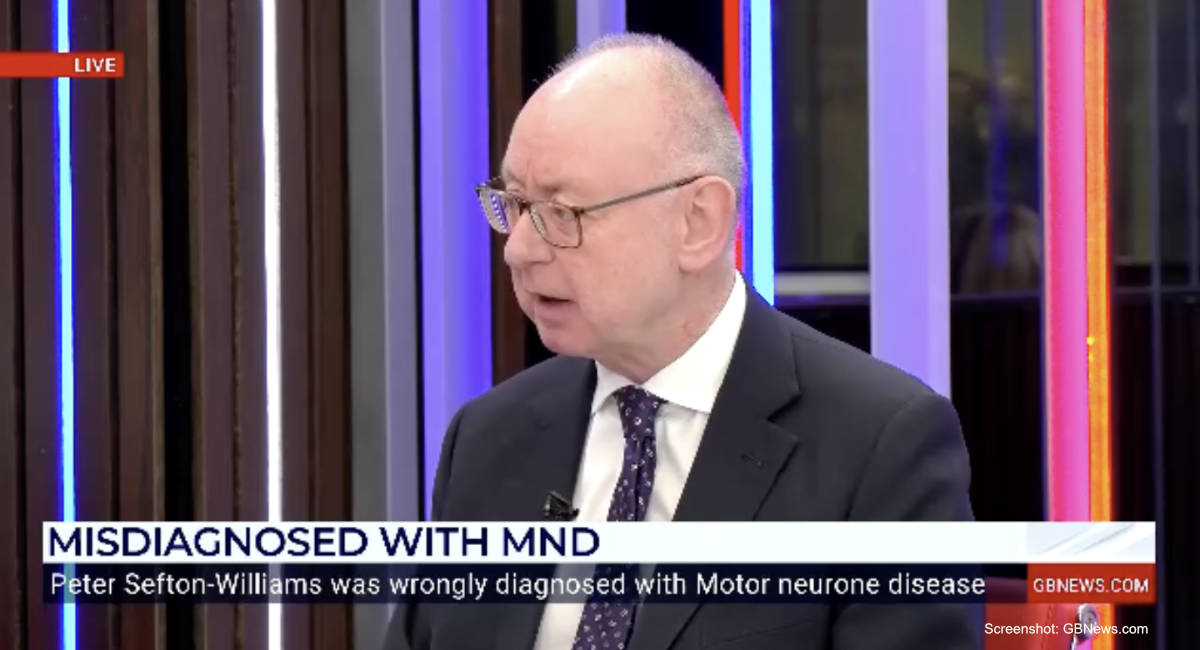Hoping to inspire Scottish MPs to vote no on an assisted suicide bill, a retired journalist is sharing his story of a misdiagnosis that nearly caused him to undergo physician-assisted suicide.
According to The Daily Mail, Peter Sefton-Williams, age 72, was given just six months to live by two specialist doctors in London. They diagnosed him with Motor Neurone Disease (MND) in 2024 and said he would die a slow and painful death that would include the wasting away of his muscles and the inability to swallow or breathe on his own.
Within hours of receiving this shocking diagnosis, Sefton-Williams made an appointment with Dignitas, an assisted death clinic in Switzerland.
“I thought, I can’t face this. I just can’t face this,” he told The Daily Mail, adding, “With MND you lose the use of your muscles and you have to press the button yourself to administer the poisons, and so I thought, well, I can’t leave it too late.”
However, as he waited months for his appointment, his health did not decline as he had expected. He decided to cancel his appointment with Dignitas and undergo further testing, which found he actually had Multifocal Motor Neuropathy, a mild, treatable autoimmune condition.
“For nine months of my life, it was like standing in front of a firing squad just waiting for the moment when I was going to die,” he said. “I realised how close I had come to taking action. I had two doctors tell me that I had MND, two very eminent specialists, and also that I could have between two months and six months to live.”
READ: Evil: US patients offered assisted suicide instead of medical care
MPs are considering the Assisted Dying (Scotland) Bill brought by Scottish Liberal Democrat Liam McArthur. It would allow assisted suicide for individuals who are told they have a terminal illness. However, those who oppose the bill say it has loopholes that would allow non-terminal patients to die. Disability rights groups have said that the bill could coerce disabled persons into assisted death as they deal with severely lacking care from the healthcare industry.
“If MSPs go ahead with this bill, they have to accept that people will die unnecessarily. There will be mistakes and people will die. So is it worth it?” said Sefton-Williams. “Do you just shrug your shoulders and say, ‘Well, that’s life, mistakes happen’? Because mistakes are going to happen, and I’m living proof of that.”
He doesn’t want anyone to go through what he did, or to die by assisted suicide based on a misdiagnosis.
“The idea that I could have done that [ended my life] is absolutely horrific and the thing that most disturbs me is that nobody would have known,” he said. “What people would have said is, ‘Peter took a brave decision. He wished to die with dignity, and that’s what he did,’ and everyone would be satisfied that it had been a good outcome. That’s what the world would think. But it wouldn’t have been a good outcome. I would have died unnecessarily.”
Sefton-Williams has traveled to Scotland to meet with MSPs and tell them his story. He said that they think they have a “very fine humanitarian motive that they don’t want people to suffer…”
“The problem is, when you go from the principle down to the practicalities and the details — it’s there that the problems begin.”
A vote on the bill is expected by May 23.








